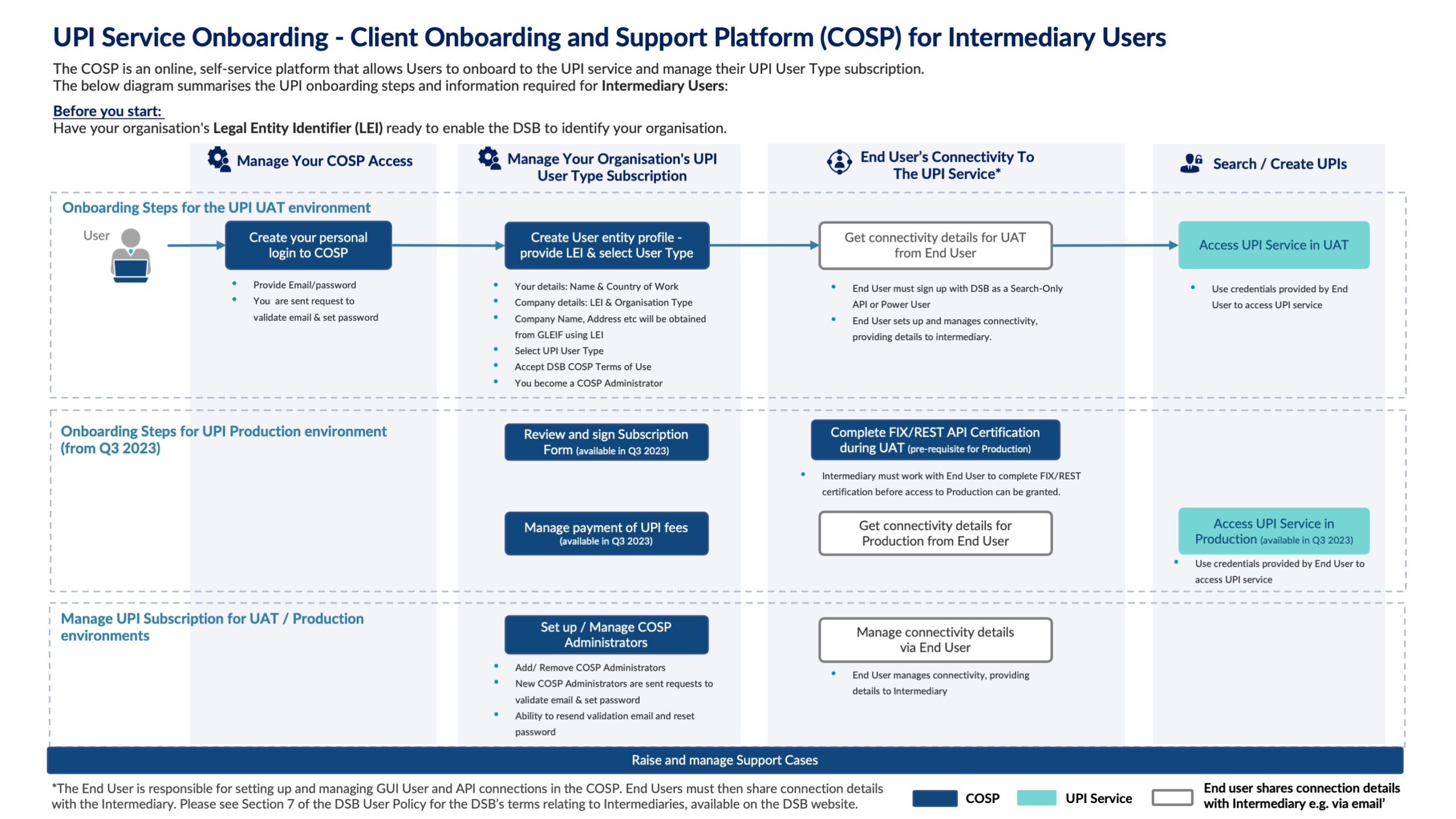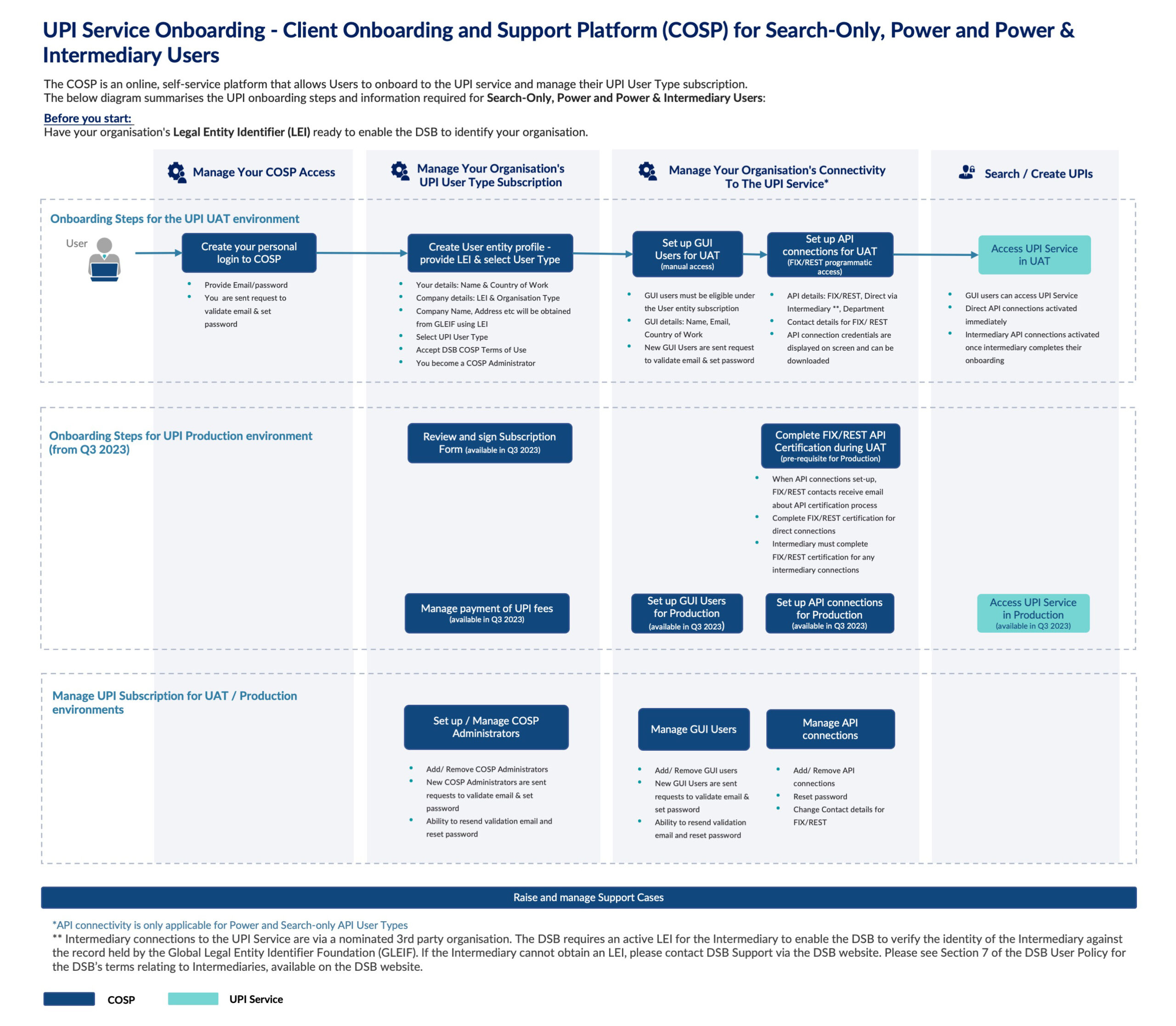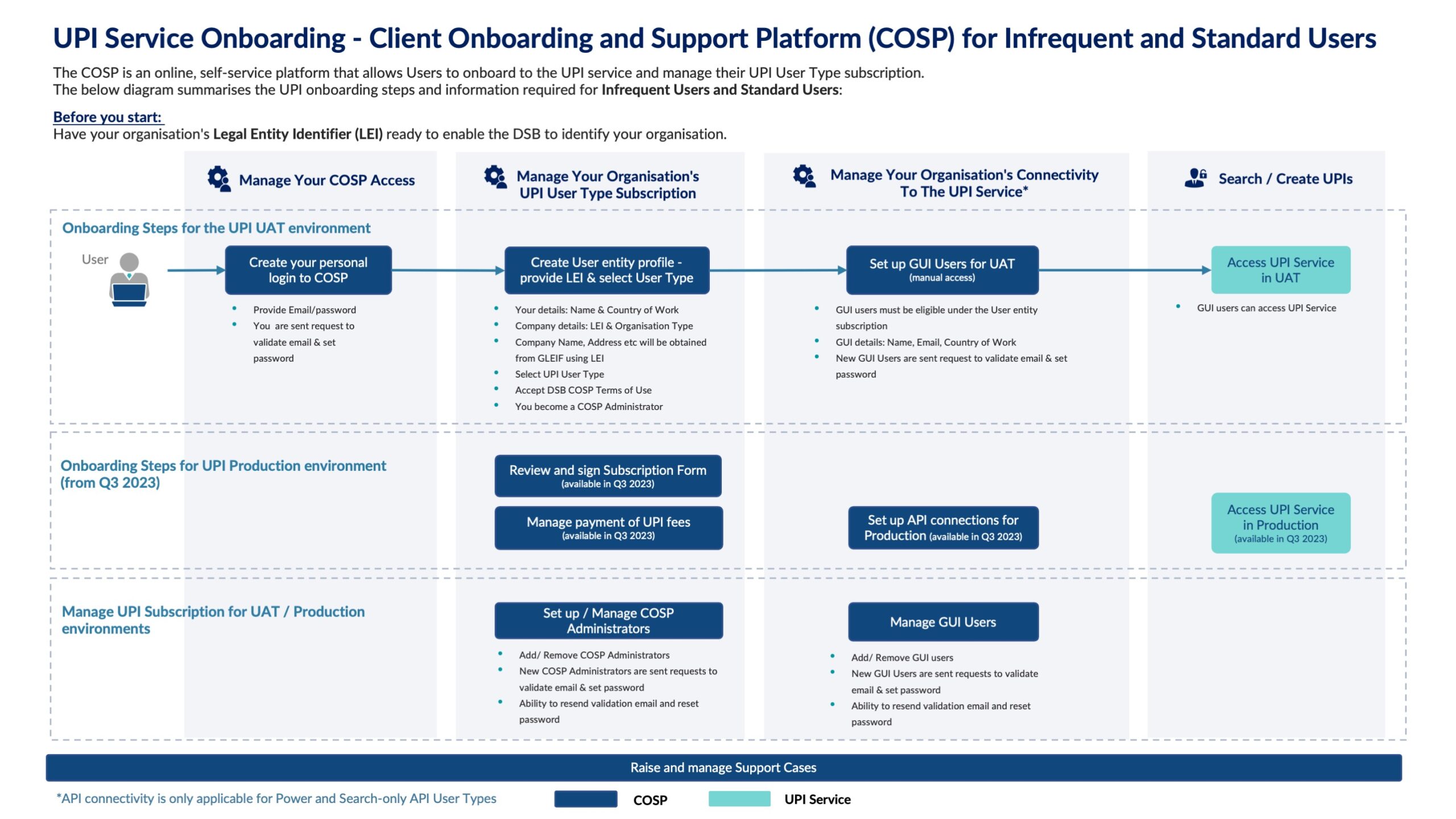The Regulatory Oversight Committee (ROC) and the Derivatives Service Bureau (DSB) announce today a joint programme to promote awareness of the use of the globally harmonised Unique Product Identifier (UPI). The ROC and DSB will jointly hold three industry fora to introduce the main features of the service.
The DSB is currently developing its UPI service, as part of its function as the issuer of UPI codes and operator of the UPI reference data library. The DSB expects to issue UPIs for over-the-counter (OTC) derivatives from July 2022 onwards. The UPI will uniquely identify the product involved in OTC derivatives transactions reported to trade repositories. This will help authorities to aggregate data on OTC derivatives transactions by product. Such aggregation will facilitate the effective use of OTC trade reporting data, including helping authorities assess systemic risk and detect market abuse. It will therefore deliver one of the key objectives of the G20 reforms to OTC derivatives markets.
In advance of UPI issuance, the ROC and DSB aim to increase awareness of the UPI amongst market participants, in order to provide firms with sufficient time to consider the UPI service and prepare for firms’ implementation planning, including resourcing, workflows and technology considerations. The ROC and DSB will jointly hold three industry fora to introduce the main features of the service, including the functionality offered, key user considerations, the implementation timeline, and to answer market participants’ questions. These industry fora, which aim to encourage market participants to prepare for the implementation of the UPI service, will take place on:
- Tuesday 25 May 2021 (8.30 to 10.30 CEST)
- Tuesday 8 June 2021 (17.00 to 19.00 CEST)
- Date in the fourth quarter of 2021 (tbc)
The programme of events is open to all interested parties.
Press enquiries:
+41 61 280 8477
ROCSecretariat@fsb.org
Notes to editors
G20 Leaders agreed at the Pittsburgh Summit in 2009, as part of a package of reforms to the OTC derivatives markets, that all OTC derivatives transactions should be reported to trade repositories. A lack of transparency in these markets was one of the key problems identified by the financial crisis. Trade reporting, by providing authorities with data on trading activity, is a key part of efforts to identify and address financial stability risks from these markets.
The 2014 FSB Feasibility study on approaches to aggregate OTC derivatives data recommended a number of key preparatory steps to enable effective global aggregation of OTC derivatives trade reporting data. One of these preparatory steps – with benefits also beyond global aggregation – is harmonisation of important data elements reported to trade repositories, including the creation of a UPI and Unique Transaction Identifier (UTI).
The UPI technical guidance was issued by CPMI and IOSCO in 2017.
The FSB announced in May 2019 that it had designated The Derivatives Service Bureau (DSB) Ltd as the service provider for the future UPI system.
The Derivatives Service Bureau is a global numbering agency for OTC derivatives serving the needs of market participants through the allocation of International Securities Identification Numbers (ISINs), the Classification of Financial Instruments (CFI) and Financial Instrument Short Name (FISN), all globally recognised and adopted ISO standards for identifying, classifying and describing financial instruments. The DSB operates on an underlying technology platform that is built to support multiple taxonomies of definitions and descriptive data, as well as providing identifiers in near-real-time.
The DSB is a legal subsidiary of the Association of National Numbering Agencies (ANNA). With widespread industry representation, expertise and collaboration at its core, the DSB’s history, pedigree and expertise are rooted in ANNA, with its broad experience and overview of handling both on and off-exchange ISINs for all asset classes.
The FSB issued in October 2019 Governance arrangements for the UPI and in October 2020 transferred all governance and oversight responsibilities in relation to the harmonised derivatives identifiers and data elements, including the UPI, to the ROC.
The ROC promotes the broad public interest by improving the quality of data used in financial data reporting, improving the ability to monitor financial risk, and lowering regulatory reporting costs through the harmonization of certain data standards across jurisdictions.
The ROC was established in November 2012 to coordinate and oversee a worldwide framework of legal entity identification through the Global Legal Entity Identifier (LEI) System. Since October 2020 the ROC has expanded its mandate to also become the International Governance Body (IGB) of the globally harmonised Unique Transaction Identifier (UTI), the Unique Product Identifier (UPI) and the Critical Data Elements (CDE) for derivatives transactions. As IGB of the UTI, UPI and CDE, the ROC is the overseer of DSB.












